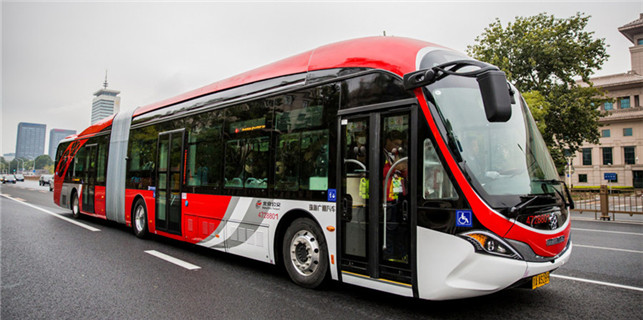Incredible development opportunities
Feike Sijbesma, CEO of Royal DSM, a global science-based company active in health, nutrition and materials, based in the Netherlands
Which three words would you use to describe China today?

Prosperity. Innovation. Sustainability. And, if I might add a fourth word, vitality. Economic prosperity has always been the country's goal. As part of the 13th Five-Year Plan (2016-20), the focus of the government's domestic development has been on reducing inequality, recalibrating the economy for more inclusive, stable growth, and addressing urbanization. At the same time, this includes reducing the environmental impact of China's rapid development as it emerges as a key player on the global stage.
Innovation also has a key role. China is emerging as a tech and innovation pioneer, which is a challenge as the country is now seen mainly as a "manufacturing machine". Innovation will need a different approach, skills and mindset.
Sustainability has been vital. Also, as part of the five-year plan, the Chinese government is seriously addressing pollution and sustainability, as well as reforming the (manufacturing) supply chain.
Finally, vitality. China is becoming more agile, transparent and efficient. The Belt and Road Initiative is having a huge impact on all the countries involved. The Made in China 2025 strategy is also being implemented, with smart technologies driving the country's manufacturing from quantity to quality.
What is the biggest challenge China faces, and how can the country overcome it?
The potential slowdown in global economic growth, and the rise of anti-globalization will create challenges. Also, addressing food security, pollution, climate change and global warming requires attention. Adding innovation to China's "manufacturing machine" will require new skills as well. Still, as the world's second-largest economy, I trust the country will continue its active role on the global stage to promote globalization and sustainability.
How do you view China's role in the world today?
As the world's second-largest economy, China is playing an increasingly important role on the global stage when it comes to political, economic and cultural issues. A stable, developing China is of vital importance for the country, as well as the rest of the world. It is remarkable with what speed and conviction China is addressing climate change, while other countries are hesitating.
What is the most unforgettable experience you have had in China?
I have visited the country many times during the past 30 years, and I have seen a great deal of changes. I have met President Xi Jinping and Premier Li Keqiang many times. I also feel honored to have been a member of the Global CEO Council of the China People's Association for Friendship with Foreign Countries for the past five years. In addition, I have attended the World Economic Forum (or Summer Davos) for six consecutive years. All of these experiences have enhanced my trust in China's future.
What factors will boost growth this year and in 2018, and what are the challenges facing China's economy?
Positive economic policies and a stable investment environment are the strongest guarantees for steady and rapid growth. Another key area to stimulate the economy is supply-side reform, addressing institutional barriers and supporting innovation. The service economy is also key field. I trust the world will continue to foster globalization as a source of prosperity for all.
What sectors offer the most opportunities for development?
Food and agricultural industries, (such as human nutrition and farming feed additives), and new green materials and technologies will provide great opportunities for China, as well as for Royal DSM. The alternative energy sector, such as solar and biofuels, will also (be crucial).






















